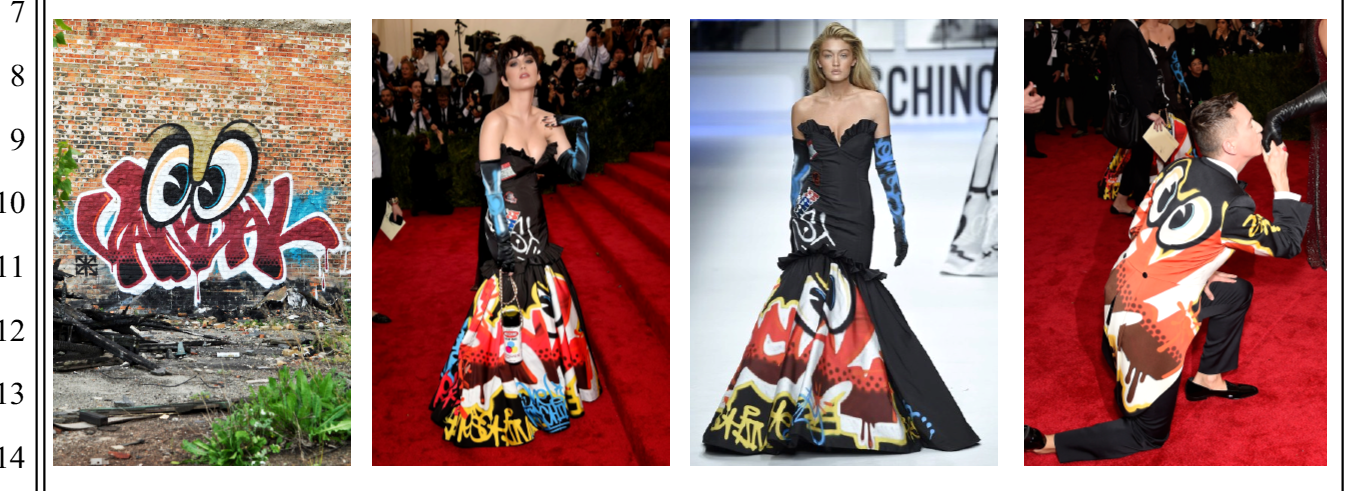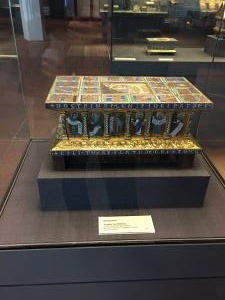The revelation that Bavaria re-sold looted artworks to Nazi families while giving victims and their heirs the run-around for years has clearly touched a nerve at the Bavarian State Paintings Collection (the Bayerische Staatsgemäldesammlungen, or BSGS). Days after the Sueddeutsche Zeitung exposed that the Commission for Looted Art in Europe (CLAE) had given the lie to years of deception by the BSGS, the BSGS issued a long, rambling, and defensive statement in defense of its actions. The statement is a classic case of misdirection. Reaction to the story and the BSGS response can be found at the Observerand the Telegraph.
Read More
Topics:
Bayern,
Nazi-looted art,
Commission for Looted Art in Europe,
Restitution,
Bavaria,
World War II,
Raubkunst,
Bayerische Staatsgemäldesammlungen
Works returned by Monuments Men to Bavaria for restitution to victims instead sold to Nazis’ families
Journalists Catrin Lorch Jörg Häntzschel published this weekend an explosive revelation in Sueddeutsche Zeitung entitled “the Munich Looted Art Bazaar,” reporting on the work of the Commission for Looted Art in Europe (CLAE): the government of Bavaria sold artworks returned to it after World War II by the famed Monuments Men that were supposed to be restituted to the victims of Nazi looting. Not only was the art given back to the German state on the explicit condition that it be restituted to the victims of Nazi art plunder, in some cases it was literally returned to the families of Nazi officials, such as Emmy Goering (Hermann’s daughter) and Henriette von Schirach rather than to the victims themselves. Less than a month after the Federal Republic of Germany’s toxic and revisionist reply brief in the Welfenschatz case (which argued, among other things, that individual claimants cannot sue because the U.S. policy was this national level restitution), the ramifications are far reaching for Germany’s self-professed adherence to the Washington Conference Principles on Nazi Looted Art of 1998. While the specific artwork in question may be less significant than most of the works found in Cornelius Gurlitt’s apartment four years ago, the revelation is in many ways much, much worse. The CLAE scholarship that lead to this schocking development cannot be praised enough.
Read More
Topics:
Monuments Men,
Nazi-looted art,
Munich,
Gurlitt,
NS Raubkunst,
Restitution,
World War II
Immediately Squanders Market Opportunities Created by Brexit
On a historic day in the European Union, Germany quietly enacted the revised Cultural Property Protection Law (Kulturgutschutzgesetz) that has sparked much controversy in recent months. On the very day that the United Kingdom’s vote to leave the European Union raises myriad questions about the effect on London in particular as a world center of the art market (see here for the terrific first take by our friends at Boodle Hatfield in London), Germany ironically has passed a law that will prevent it from stepping into any of the likely market void left by Britain's EU exit. While Germany is not alone in cultural property protection laws of this sort, it is a silly and unnecessary regulation that will undercut the German art market—as vocally proclaimed by German art market players themselves. In the art world, it was a regressive day on the eastern side of the Atlantic and a huge opportunity lost for Germany.
Read More
Topics:
Germany,
France,
England,
Kulturgutschutzgesetz,
Federal Republic of Germany,
Cultural Property Protection Law,
Brexit,
Export Restriction,
European Union,
Joan of Arc
The Ninth Circuit has ruled against two artists in a long-running dispute about a hybrid school bus creation at Burning Man more than ten years ago, a “galleon” named La Contessa. In announcing a test that focuses on whether the object is “utilitarian” to warrant protection under the Visual Artists Rights Act of 1990, 17 U.S.C. § 106A (“VARA”), the Court of Appeals has added an element that the statute does not contain. Namely, any artist that incorporates an object that once had an independent function must essentially ensure that the object does not work any more. Otherwise, the potential that it could resume its former function eliminates legal protection. So school bus with a Spanish galleon on top is “applied art” and ineligible for VARA protection, while a school bus attached to a wall is “a work of visual art.” It is a test that appears ripe for problems in the application. What is it about VARA that so bedevils interpretation? As we have often lamented, VARA guidance is somewhat rare, and often muddled. From here, this latest result is a continuation in that trend, particularly because it starts off by confusing the rights of attribution and integrity, which are different rights with different remedies.
Read More
Topics:
Visual Artists Rights Act of 1990,
VARA,
La Contessa,
Burning Man,
Simon Cheffins,
Gegory Jones
The Senate Judiciary Committee held a hearing this week (video available here) on the Holocaust Art Recovery Act (the “HEAR Act”) that drew welcome attention to the ongoing challenges to the restitution of Nazi-looted art. We were skeptical about the bill’s chances for passage when it was proposed for largely structural reasons: it is the summer before a Presidential election, which is a time when things rarely get done in Washington. Yet it is undeniable that with its bipartisan sponsors Richard Blumenthal, Charles Schumer, Ted Cruz, and John Cornyn—strange political bedfellows under any circumstance—the hearing was an open and constructive discussion that showcased real momentum towards passage. Senator Chuck Grassley’s expediting of the hearing is also a sign that there may be a vote soon. This is important, because recent bills to amend the FSIA as to looted art claims, for example, have never even had a hearing in the Judiciary Committee, let alone gotten a vote (they did pass the House first). Yesterday’s hearing definitely moves the bill into a different category with regard to its prospects. The President has not made any comments on it—yet.
Read More
Topics:
Legislation,
Nazi-looted art,
Restitution,
Statute of Limitations,
Charles Schumer,
John Cornyn,
Richard Blumenthal,
Ted Cruz
The Art Law Centre in Geneva, which has sponsored terrific events in the past, is holding another at the end of next month:the Second All Art and Cultural Heritage Law Conference. Registration is available now (before June 13) for what looks to be an engaging two days. From the program:
The Art-Law Centre and the UNESCO Chair in the International Law of the Protection of Cultural Heritage are proud to invite you to participate in the second “All Art and Cultural Heritage Law” conference, which will be dealing with the two following highly relevant themes: cultural heritage in the crossfire and the relationship between law and ethics in the field of cultural heritage. It will also present some national and regional experiences regarding the implementation of cultural heritage law. Once again Geneva hopes to be for these two days the “capital of the world” of art and cultural heritage law.
Read More
Topics:
Geneva,
Events,
Art Law Centre,
University of Geneva

After reports of a settlement proved premature, designer Moschino S.p.A. and its creative director Jeremy Scott have moved for summary judgment on the copyright claims filed last year by street artist Joseph Tierney, better known as “Rime.” The motion raises a number of arguments, but the most significant is the contention that Tierney’s work, as graffiti, is ineligible for copyright protection in the first instance. The view here is that defendants are mistaken about the eligibility question. And even if defendants can convince the court that they are right about the legal question of the availability of copyright for street art or graffiti, Tierney’s factual rebuttal on the question of whether had permission to create the art that was used in Moschino’s clothing designs makes it hard to imagine that they could convince the court that there are no material facts in dispute—the applicable standard for a motion for summary judgment. It will be very interesting too to see how the court grapples with questions about whether characters and symbols can be copyright management information (CMI) under the Digital Millennium Copyright Act (DMCA, 17 U.S.C. § 1202).
Read More
Topics:
copyright management information,
DMCA,
Rime,
Graffiti Art,
Copyright,
Moschino,
CMI
We filed yesterday the opposition to the motion to dismiss my clients’ claims over the 1935 forced sale of the Guelph Treasure, or Welfenschatz. The motion was filed two months ago by defendants Germany and the Stiftung Preussischer Kulturbesitz. As we noted when Germany first moved to dismiss the complaint last fall, Germany’s arguments were revisionist and alarming in a number of troubling ways, most seriously because they tried to excuse persecution of Jews before an arbitrary date as an internal affair not subject to U.S. court jurisdiction, and because it repudiated Germany’s international commitments under the Washington Principles to address restitution claims on the merits. The abject failure of the Advisory Commission, which Germany tries to portray here as some sort of arbitration (which it is not) is also at the fore.


Read More
Topics:
Nazi-looted art,
Foreign Sovereign Immunities Act,
Advisory Commission,
Beratende Kommission,
FSIA,
NS Raubkunst,
Restitution,
World War II,
Welfenschatz,
Limbach Commission
Refreshingly, March 18 passed this year without the usual breathless maybe-it’s-about-to-turn-up coverage that has often been manufactured each year on the anniversary of the Isabella Stewart Gardner heist of 1990. That theft, which remains on the short list of civic and public crimes against Boston, remains unsolved. After what seemed like a real development last year: the disclosure of the surveillance tape of the night before the theft and a possible dry run by the criminals, news has been scarce. Notwithstanding a few tipsters seemingly intent on paraphrasing Danny Ocean’s “I know a guy” speech in Ocean’s Eleven, the tape release has not managed to warm a cold trail.
Read More
Topics:
Isabella Stewart Gardner Museum,
Isabella Stewart Gardner Museum Theft
Germany has apparently decided to postpone its ill-conceived plans to exhibit the hundreds of works of art that it still holds from the trove seized from the late Cornelius Gurlitt. This decision was announced as a date was set to hear the latest stage of the challenge brought by Gurlitt’s cousin Uta Werner to the will that Gurlitt wrote in the last weeks of his life, leaving the entire collection to the Kunstmuseum Bern. As the Gurlitt fiasco trudges through its fourth year, this move is emblematic of the too little too late approach that has characterized the entire affair.
Read More
Topics:
Schwabinger Kunstfund,
Nazi-looted art,
Gurlitt,
Restitution,
World War II,
Task Force,
Kunstmuseum Bern,
Monika Grütters,
Raubkunst






